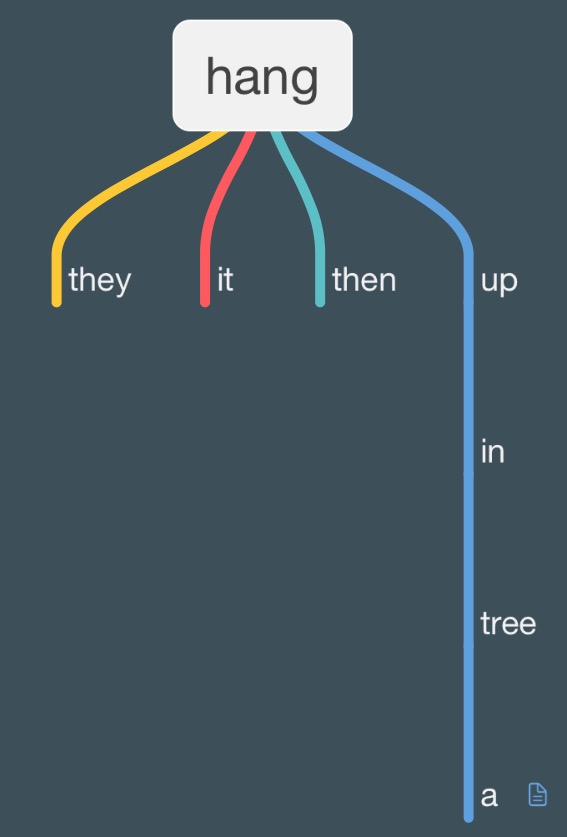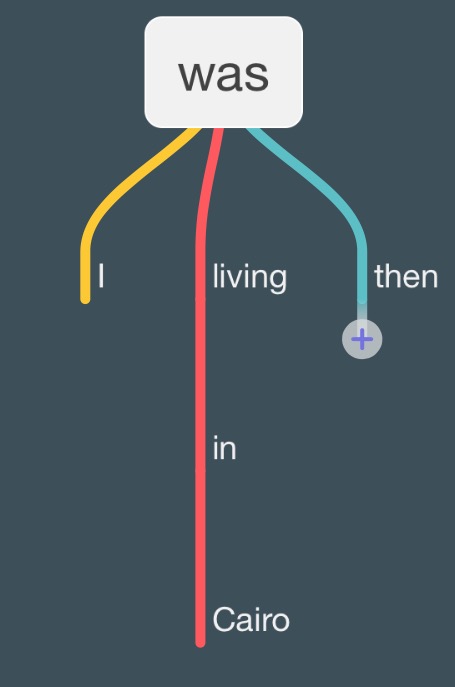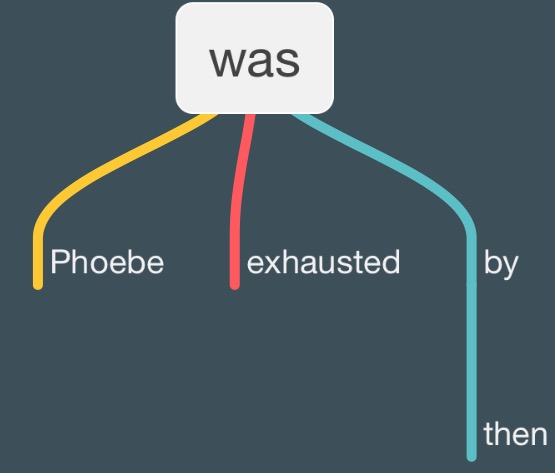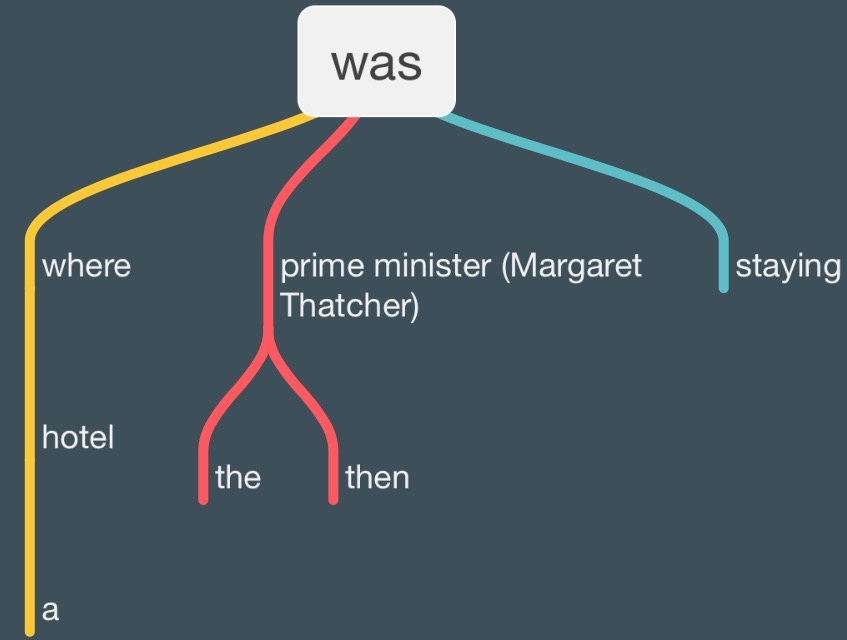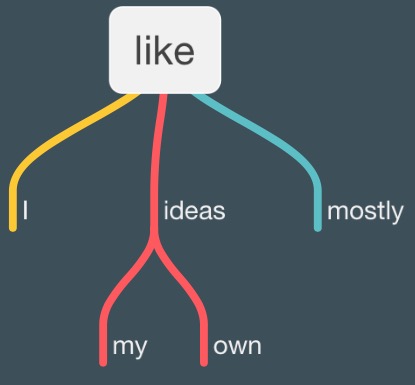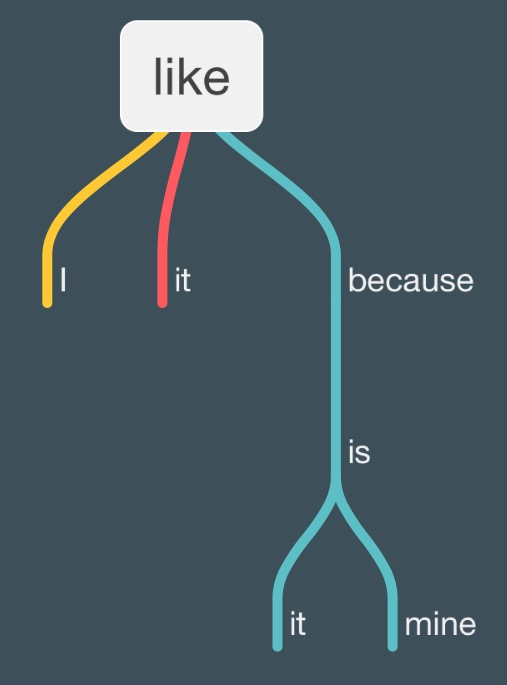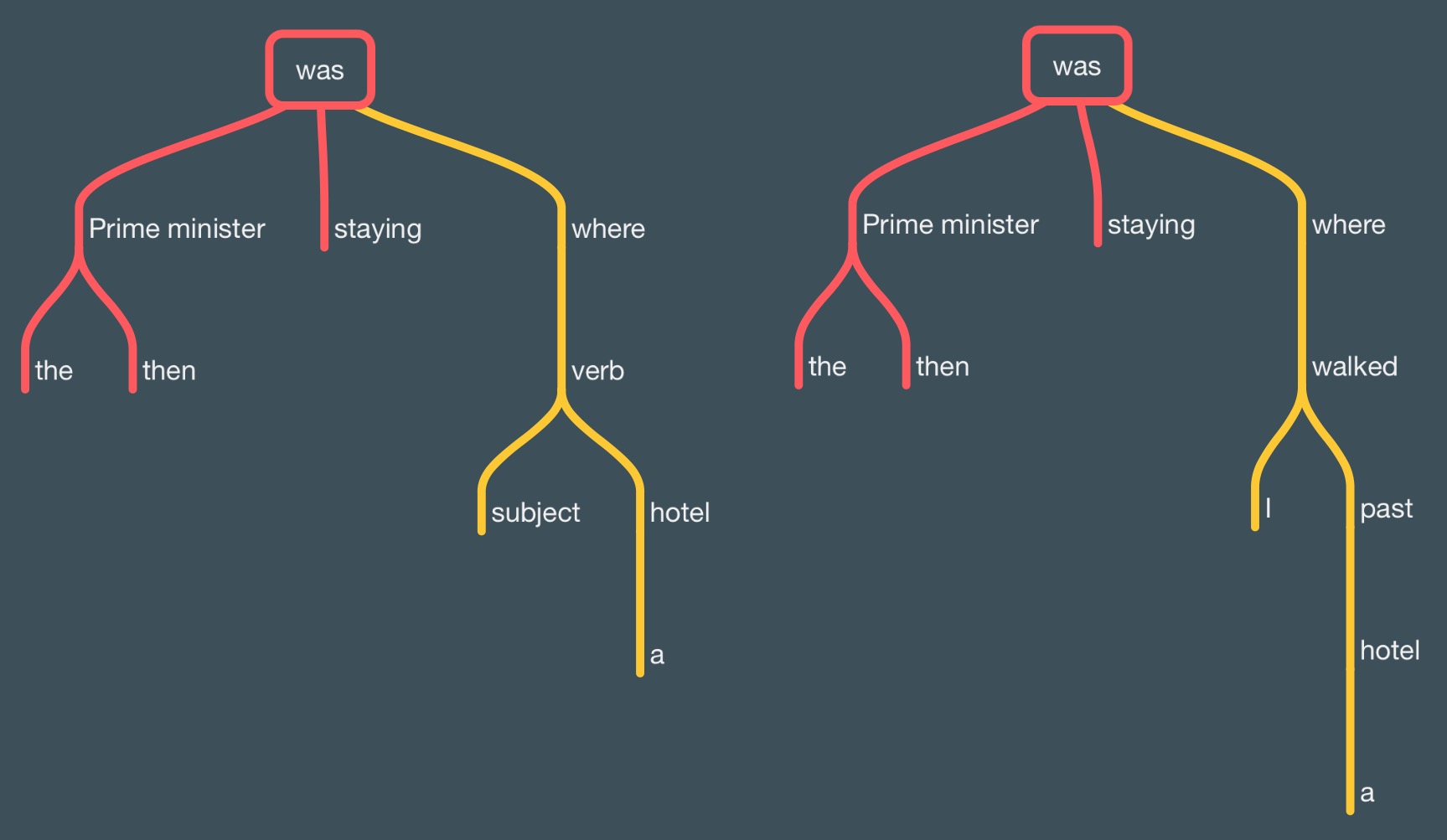Project Summary
I think I should do more practice with grammar in order to gain more from my earlier investment in learning the basics of grammar. I’ll do lots of practice of grammar trees. I’ll go through the grammar tree videos and go through exercises other people have done.
Goal
What’s your goal? Why do you have that goal? How will you judge success and failure? What bigger picture goals or values are you pursuing? How is this relevant to CF?
I want to improve my grammar skill and build on by basic understanding of grammar. I think it’ll be useful for textual analysis, which is useful for philosophy.
The success criteria is essentially just to execute on the plan. I discuss judging success on skill level in the next section.
Plan
What’s your plan? How big is the project? What resources do you expect it to require and what have you allocated for it? How confident are you about succeeding? What sort of errors or error rate do you expect and how will you deal with that? Got any error correction mechanisms? What are the risks of not finishing the project or failing and do you have any plan to address those risks?
I plan to revise the FI grammar article and take notes on it this time. I want to do high volume of grammar tree exercises. I’m thinking of going through exercises that other people have done, this way it’s easier to find errors in my exercises through comparison. The ones I know are from Fire, Max, AnneB, and @Eternity. I’ll see if there are some in @LMD’s thread that I can do as well. I’ll also watch the grammar tree videos and do the exercises that are in them. If I have more time in the project I might practice on sentences from a book I’m reading. I will definitely do the exercises from the videos, but I might not do all the ones from the other sets I mentioned above.
In the last project I was rushing a bit to get done within the deadline, so I avoided researching much about grammar topics. I want this project to have more freedom in researching topics that come up. I want to try to research more while practicing exercises and see if it can help on some that I’m uncertain on.
Since I’m not sure how much I will do then I’m not sure how long the project should take. Perhaps not all projects must have a deadline and estimated length. Perhaps you could say you want to do a project until you reach a proficiency at a skill, and then perhaps specify an absolute maximum time to spend on the project.
If I were to do this project until I reach a certain skill level in grammar I’m not sure how to make it an objective an measurable goal. It would be easier if there were grammar practice sheets with exercises labeled as easy, medium, hard etc. Then I could say until I could do a set of 10 for a difficulty with max 1 error. Since I don’t have that I could source my sentences randomly from a book.
I wanted to do project that would take about 2 weeks. So the plan is to spend roughly 2 weeks. I’ll set the maximum time for the project at 4 weeks, at that time I’ll reevaluate whether to continue or not. I want to spend around 2-3 hours on this project daily. I’ll start tomorrow.
I’ll say the success criteria is to go through all the grammar tree videos and then do at least two of the sets that I mentioned and make notes on the FI grammar article. Later in the project, I might decide to go with the 10 random sentences from a book suggestion.
I think it would be better to have more measurable success criteria and more clear time estimation, but I think it’s better to just do project and get practice rather than having them be perfectly planned, so I think this fine for now.
I think I had an error in about 2-4 out of 10 exercises in the last project, so I would expect around the same given I have learnt from the project, but have had month long break from grammar work. Most exercises have a suggested solution which should help with detecting and correcting errors.
Here’s a tree representation/outline (.org file) of the project which I’ll also use to track time in the project:
* PROJ grammar trees
** TODO fill in project template
:LOGBOOK:
CLOCK: [2024-12-15 Sun 22:03]--[2024-12-15 Sun 22:36] => 0:33
CLOCK: [2024-12-15 Sun 18:26]--[2024-12-15 Sun 18:37] => 0:11
CLOCK: [2024-12-01 Sun 00:10]--[2024-12-01 Sun 00:55] => 0:45
:END:
** TODO review grammar material
*** TODO FI article
*** TODO nonfinite verbs
** TODO watch grammar tree videos
** TODO grammar tree exercise collections
*** TODO first pass of exercises
*** TODO error correction
** TODO project conclusion
Other People
What help are you asking from others? What value are you offering to others? Will you complete the project independently if no one else participates? Why are you sharing this with others? What sort of criticism do you want?
I think I can only offer value to others who are trying to learn grammar using grammar trees.
I appreciate critique and help on the project and the answers I give. I’m quite certain I’ll complete the project without outside help.
I’m extra uncertain about the plan for this project, so I would appreciate criticism on that. Otherwise I approve of the quote above for this project as well.
I’m sharing such that I can get help, help future learners, and to build my public track record of projects.
Context
What’s the context? What’s your relevant background and track record? Why are you prioritizing this over alternative projects? Why are you doing it right now? What have you already done?
In the last project I read the FI grammar article and did the exercises in it. I think I need more practice in order to take use of what I learned. So I think this stage of grammar learning isn’t complete. I don’t need to learn all of grammar in order to be ‘complete’, but I think I need to reach a higher proficiency level at the stuff I learned before I should learn other things.
